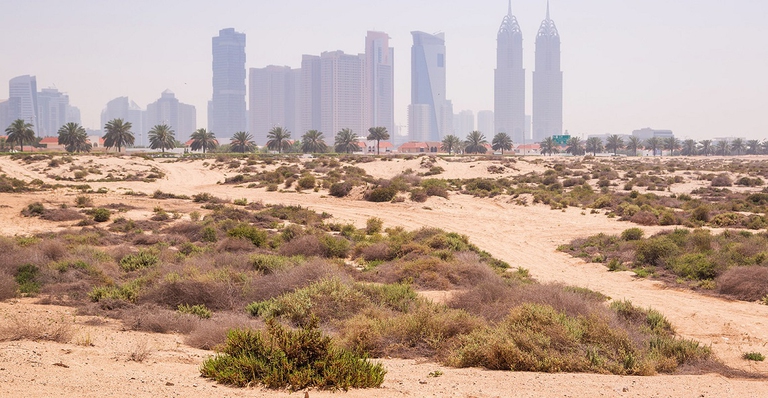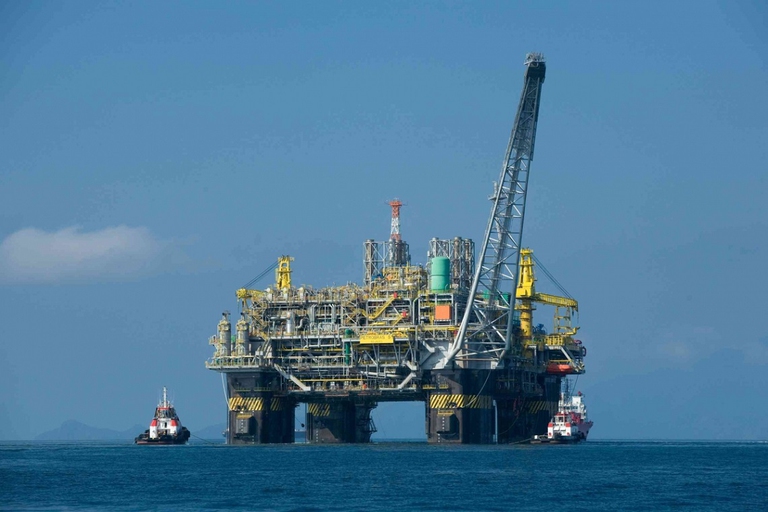
South African court dismisses a major lawsuit by 140,000 Zambian women and children against Anglo American for Kabwe lead poisoning. A setback for affected communities enduring the lasting impact of lead contamination.
Alla fine del secolo le temperature dell’area del Golfo Persico potrebbero essere insopportabili per gli esseri umani.
Dubai, lively emirate rose between the desert and the Persian Gulf, could become a ghost city by the end of the century. Due to climate change, temperatures in the gulf area could exceed 70°C by 2100, becoming unbearable to human body.
The alarming forecast has emerged from a new study carried out by Jeremy Pal of the Loyola Marymount University, and Elfatih Eltahir of the Massachusetts Institute of Technology, and published on Nature Climate Change.
The researchers, through sophisticated climate simulations of the area, managed to obtain information about temperatures by the end of the century, between 2071 and 2100. They thereafter assessed climate variations related to greenhouse gas concentrations, by using two projections by the IPCC (Intergovernmental Panel on Climate Change): one forecasts the rising temperatures to continue at current levels, whilst the other considers a reduction in emissions.
According to the first scenario, climate will be warmer, occasionally exceeding the threshold of human survivability in the major cities of the region. On the other hand, according to the second scenario, decreasing CO2 emissions will avoid critical increase in temperatures.
This implies an inevitable concern about public health: elderly and sick people will be the first ones to be affected, but also healthy people will be jeopardised after many hours of exposition.
“Such severe heat waves are expected to occur only once every decade or every few decades,” said study author Elfatih Eltahir. “But when they happen they will be quite lethal.”
This phenomenon could also threaten the region’s economy, mainly affecting the oil industry, the major economic resource of the Arab Emirates.
Ironically, fossil fuels and emissions they cause could doom many cities of the Persian Gulf to disappear, unless effective global strategies are implemented to reduce greenhouse gas emissions.
Siamo anche su WhatsApp. Segui il canale ufficiale LifeGate per restare aggiornata, aggiornato sulle ultime notizie e sulle nostre attività.
![]()
Quest'opera è distribuita con Licenza Creative Commons Attribuzione - Non commerciale - Non opere derivate 4.0 Internazionale.
South African court dismisses a major lawsuit by 140,000 Zambian women and children against Anglo American for Kabwe lead poisoning. A setback for affected communities enduring the lasting impact of lead contamination.
Controversial African land deals by Blue Carbon face skepticism regarding their environmental impact and doubts about the company’s track record, raising concerns about potential divergence from authentic environmental initiatives.
Majuli, the world’s largest river island in Assam State of India is quickly disappearing into the Brahmaputra river due to soil erosion.
Food imported into the EU aren’t subject to the same production standards as European food. The introduction of mirror clauses would ensure reciprocity while also encouraging the agroecological transition.
Sikkim is a hilly State in north-east India. Surrounded by villages that attracts outsiders thanks to its soothing calmness and natural beauty.
Sikkim, one of the smallest states in India has made it mandatory for new mothers to plant saplings and protect them like their children to save environment
Chilekwa Mumba is a Zambian is an environmental activist and community organizer. He is known for having organized a successful lawsuit against UK-based mining companies.
What led to the Fukushima water release, and what are the impacts of one of the most controversial decisions of the post-nuclear disaster clean-up effort?
Nzambi Matee is a Kenyan engineer who produces sustainable low-cost construction materials made of recycled plastic waste with the aim of addressing plastic pollution and affordable housing.










